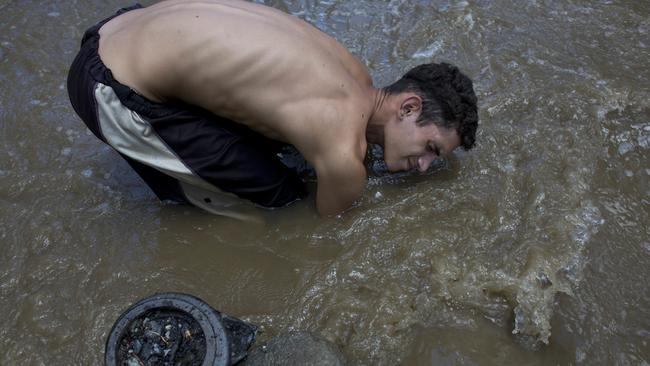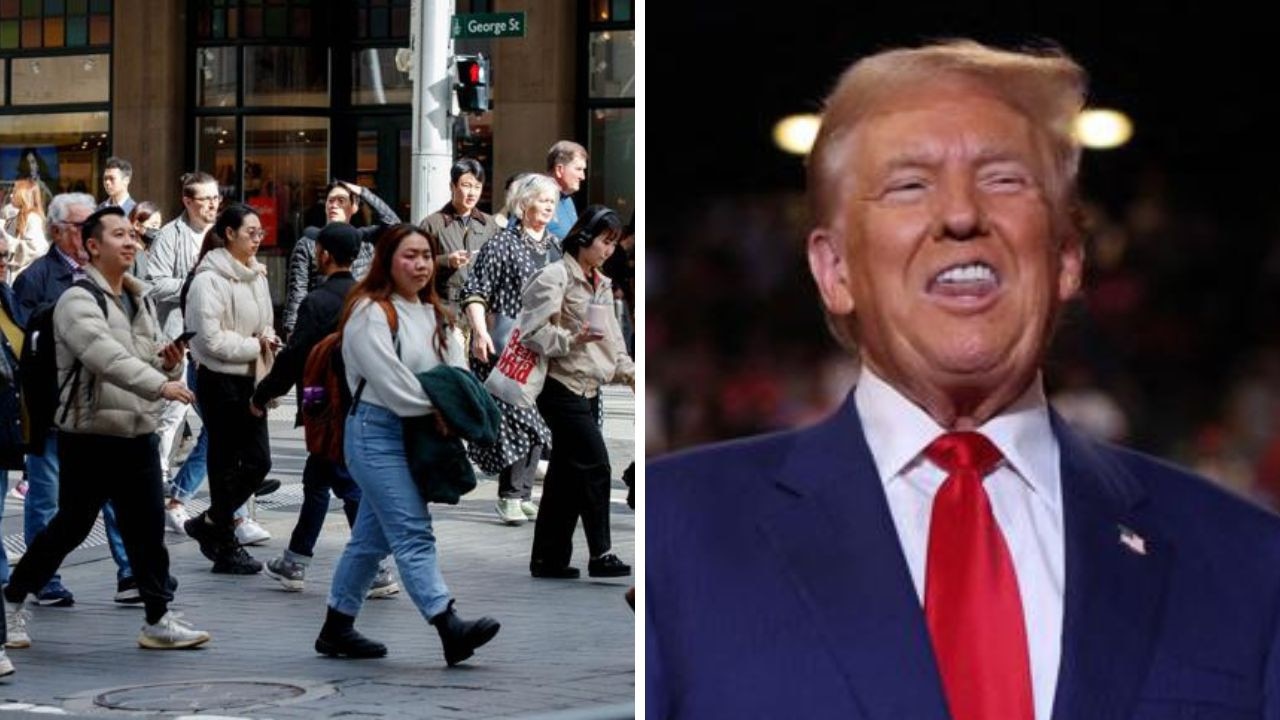‘We loot or we die of hunger’: Starving Venezuelans steal, kill, to eat
THEY are people so broke and hungry they swam to a fishing boat and raided it of its catch. The crisis in Venezuela is spiralling from dire, to worse.
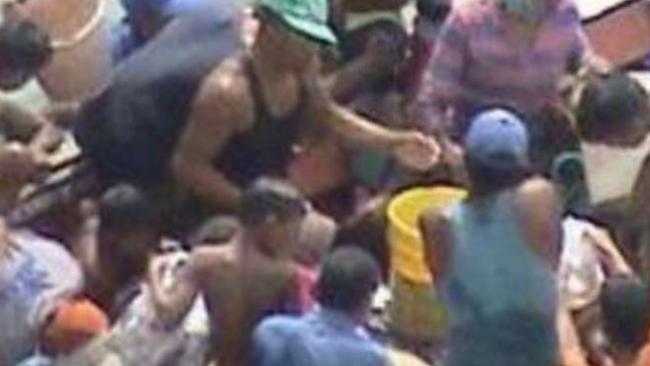
AS food shortages, looting and protests worsen in Venezuela and the political, social and economic situation in continues to deteriorate, the outside world is moving against its leaders.
The European Union has imposed economic and travel sanctions against seven senior Venezuelan officials accused of human rights abuses or breaching the rule of law in the crisis-ridden country.
The EU’s move comes after US authorities levied sanctions against dozens of Venezuela’s leaders, including President Nicolas Maduro last week.
But it may do little to ease things for the people of a country which is free-falling into full-blown crisis
Looters have ransacked trucks, supermarkets and liquor stores across the nation of 30 million people, which ranks as one of the most violent in the world.
“THEY PLUNDERED A BOAT OF SARDINES”
Worsening food shortages and out-of-control inflation, have seen of looting, protests and pillaging escalate since the start of 2018, claiming the lives of at least seven people.
Venezuelans are so broke and hungry that on Margarita Island, a fishing boat returning with its catch of sardines was raided by a hungry mob who waded into the sea.
En Margarita saquean una lancha llena de sardinas.Los pobladores de la zona se tiraron al mar con tobos y antes de que la lancha anclara se llevaron la pesca.Los pescadores no opusieron resistencia ante la agresividad de la gente (hombres,mujeres y niños) con hambre y desesperada pic.twitter.com/DNhnPoMdOD
— Antonio José Vargas (@AbogadoAntonioV) January 18, 2018
“The plundered a boat full of sardines,” a post accompanying a picture of the besieged boat on Twitter roughly translates to. It goes on to explain fishermen did not resist the aggressive, hungry and desperate horde of men, women and children.
Angry about empty supermarket shelves and soaring prices, some people are breaking into warehouses, ransacking food trucks and invading outlying farms.
“We either loot or we die of hunger,” one of the looters, Maryoli Corniele, told Diario la Verdad, a local newspaper, The Guardian reports.
HORSES STOLEN, SLAUGHTERED
In the first 11 days of January there were 107 lootings or attempted lootings, according to the Venezuelan Observatory for Social Conflict, Reuters reported.
Other headlines in the country’s papers highlight the desperation of the hungry: a mob slaughtered cattle grazing in a field in the mountainous western state of Merida, others looking for food stopped and searched cars and trucks on the national highway..
In early December, thieves stole two horses from a vet school and slaughtered them for their meat. according to El Nacional.
When a truck carrying live chickens crashed on a highway in Aragua last week, looters stripped its cargo, according to Mexican newspaper Excelsior says.
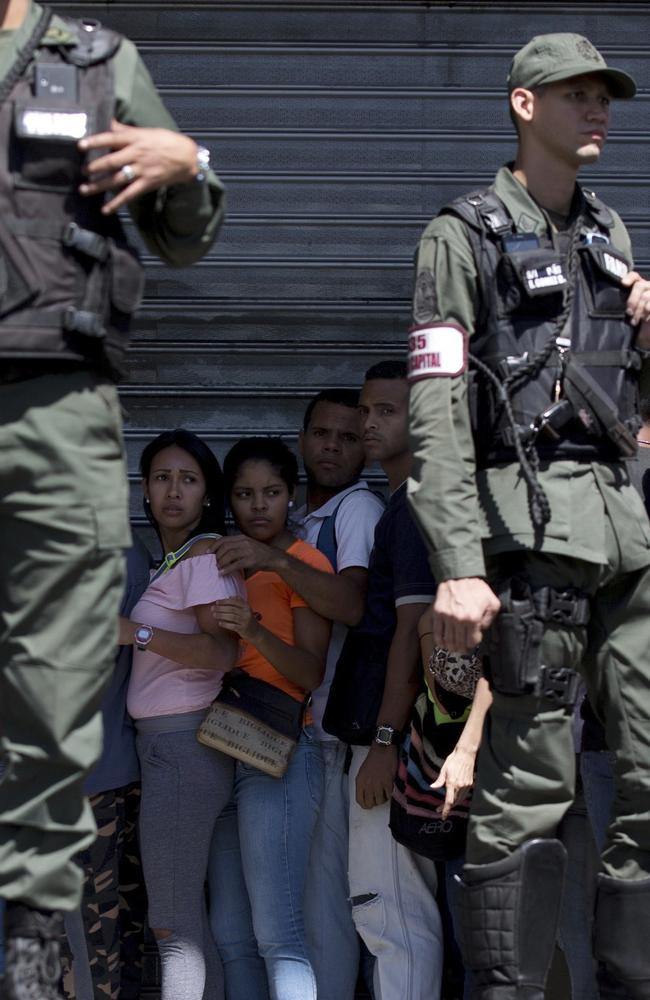
The unrest was sparked by shortages of pork for traditional holiday meals, despite socialist President Nicolas Maduro’s promise of subsidised meat to alleviate shortages.
The EU sanctions are aimed at raising pressure on President Maduro’s government.
Maduro is accused of crushing opposition parties and other human rights abuses, Reuters reports.
Venezuela “does not have enough resources to import food any longer”, according to Alexander Duarte, an exiled Venezuelan journalist now based in Toronto, wrote in an opinion piece in The Globe and Mail.
“The so-called food-sovereignty translates into hunger, malnutrition, repeated looting of supermarkets and food-transporting trucks, farmhouse robbery, and livestock theft.”
“NOTHING TO SEE HERE”
The government claims that nothing is wrong.
Maduro’s government denies there is a “humanitarian crisis” in the country and blames sanctions imposed by the United States for affecting the importation of food and medicine
The government now stands accused of using the cover of starving protesters and economic chaos to crack down on dissent.
Former police pilot Oscar Perez and six other counter-revolutionaries in an extrajudicial execution last week, it’s claimed.
Perez was holed up in a hide-out near Caracas. He pleaded on social media for a chance to surrender to police. Instead, the celebrated dissident and his cohorts were killed.
It ended a manhunt for Perez that began after he led a helicopter attack on government buildings in June last year, calling for an uprising against the government.
Life in the once-prosperous nation is now officially hell, theWall Street Journal reports.
The minimum monthly wage is 797,510 bolivars. Last week, that was worth less than $AUD$5.
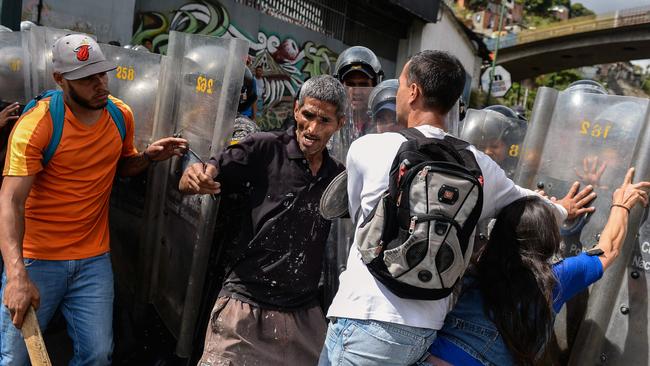
There is very little physical cash in the country, making purchases that require it — like catching a bus — almost impossible.
Basic medical supplies can’t be found in stores. As people die of treatable diseases, the government last week launched a health plan that relies on herbs and natural remedies.
The “100 per cent Natural Health Plan” seeks the “rescue of historic and patrimonial health, knowledge of the old ladies,” President Nicolas Maduro said at the presidential palace.
“I am curing a terrible flu that hit me at the beginning of the year with camomile, aloe, lemon and a little honey.”
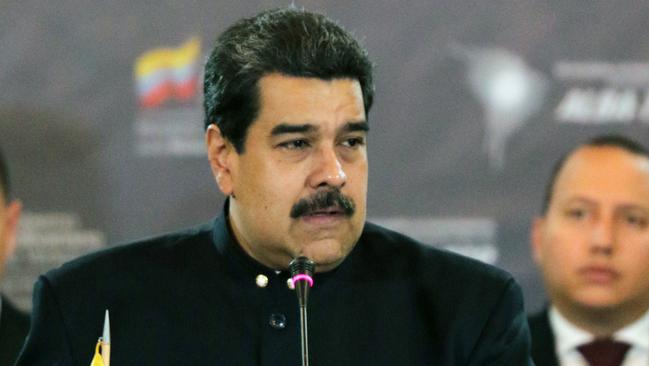
The Coalition of Organisations for the Right to Health and Life has denounced an “absolute and prolonged absence” of basic pharmaceuticals to treat diseases including kidney failure, cancer and multiple sclerosis.
Antibiotics and drugs to control blood pressure are also scarce.
More than half a million Venezuelans have taken refuge in Colombia to escape the crippling economic crisis, Bogota’s migration authority says — up 62 per cent on the previous year.
Meanwhile some shopkeepers have taken matters into their own hands.
“We’re arming ourselves with sticks, knives, machetes, and firearms to defend our assets,” William Roa, the president of the local shopkeepers’ association in Garcia de Hevia, told Reuters,
Businessmen fear the lootings, so far concentrated in the poorer and more lawless provinces, will spread to the capital, Caracas, with its teeming hillside slums.
Venezuelan supermarkets that are open have scant stocks and many empty shelves.
Outside, poor Venezuelans wait on the street, begging shoppers to buy them goods.
